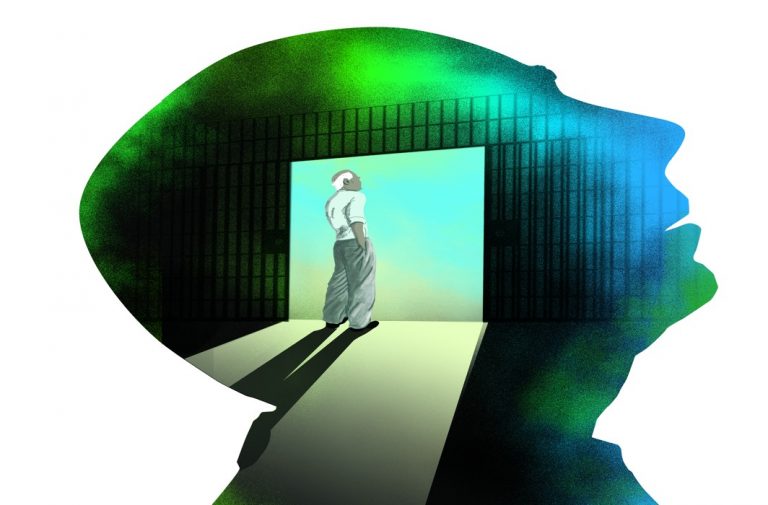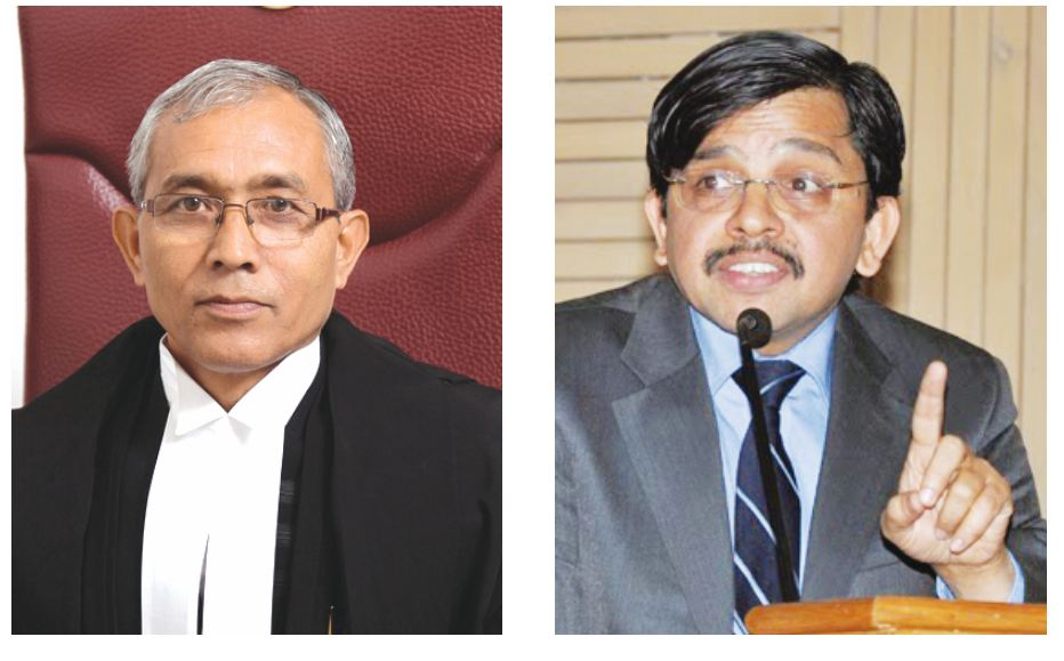
A Delhi High Court judgment ushers in a new dawn for millions of Indians living with mental illness

~By Prof Upendra Baxi
Big events make news, evoke media comment and public concern. The Supreme Court has evoked national concern ever since January 12, 2018, when its four seniormost justices not only released a letter they had written to the chief justice of India (CJI) concerning the ways the roster and collegium systems were working or not allowed to work properly but also appealed to the nation and history to rectify the current unhappy state. Then followed letters to the CJI by two of the four justices and the motion for his removal was proposed by seven political parties. This was not accepted by the vice-chairman of the Rajya Sabha because no prima facie case for “proven misconduct” was made out. The latest act was the Union law minister’s letter raising several difficulties regarding the elevation to the Supreme Court of Uttarakhand High Court Chief Justice KM Joseph. The Supreme Court has now deferred the decision but the final resolution is expected soon.
The political executive has grudgingly tolerated an independent judiciary since Pandit Jawaharlal Nehru’s times and also engaged simultaneously in considerable political warfare over judicial appointments. The present regime, after the National Judicial Commission constitutional amendment and the Act were voided, has struggled to retain some delaying and veto powers over the collegium’s decisions. This needless and unseemly institutional confrontation can be avoided; Parliament has plenary powers to enact a new law which would preserve the primacy of the five seniormost justices of the Supreme Court. A new law can, of course, be challenged but the SCI has left intact the plenary amendatory powers of Parliament.
JUSTICE FOR THE COMMON MAN
However, everyday justicing will not let the big events eclipse the rights of Indian citizens. That was the simple and direct message of Justices S Murlidhar and I Mehta when approached for the release of 71-year-old Ram Kumar who was illegally detained in the Institute of Human Behaviour and Allied Sciences (IHBAS).
Ram Kumar was “unbeknownst to his family, taken away to IHBAS for observation for two days” and his “unlawful detention” was continued by orders issued on November 5 and 20, 2017, by the Metropolitan Magistrate at Rohini. His only fault was to express anger by shouting and even creating a “ruckus” at the law’s delays (he was a petitioner-in-person). He was kept under “observation” at IHBAS, though not found to be maniac depressive or in any way mentally unsound. While the Delhi High Court reproached him for suffering a “litigation neurosis”, it did not concede any mental illness. It ordered his release on November 25, 2017, but on April 26, 2018, gave a seven-part detailed constitutional judgment.

The judicial discourse is indeed astonishing for it exudes justice. Not merely is it clearly and elegantly written, it also makes an impassioned plea for the “complete dismantling of the penal custodial model of health care” and an alert for everyone to view the mental health law as “essentially concerning the right to treatment and care of persons” consistent with their rights to “liberty and dignity and need for autonomy”.
The Court recorded “numerous illegalities” and found a “dismal failure of our system, which includes the police, the judiciary and mental health professionals to protect the fundamental rights of an individual” and “disastrous consequences that the abuse of the mental health law can have for the right to liberty, dignity and privacy”.
The High Court declared the detention unauthorised by law and the Constitution, and in a rare judicial act, extended the apologies of the judiciary for this breach of rights, even when fully mindful of the difficulties of heavily burdened judicial officers. It understood fully the artlessness of petitioners-in-person, who also often consume adjudicative time but declined to relax its vigilance concerning the violation of basic rights. Besides elaborately condemning the act, the Court directed the Delhi government to pay Rs 2 lakh to the petitioner for this lawless detention.
The consequential reliefs are also reminiscent of the halcyon days of Justices PN Bhagwati and Krishna Iyer. The Delhi High Court directed the Rohini court to decide the matter expeditiously; it also directed the Medical Council of India to examine the full archives for further action, where necessary, in 12 weeks against the concerned doctors for illegal confinement. Initial exercises by all legal aid and mental health authorities are to be completed within six months and “ongoing” exercises stand directed to determine the number of inmates held illegally and to conduct a survey of facilities.
FUTURE REDRESSAL
What is more, the Delhi Judicial Academy was directed to annually engage at least four orientation programmes in association with mental health, legal aid, and police authorities. Perhaps, the Court in future can also draw the attention of local bar associations and the State Bar Council alongside the Bar Council of India to organise awareness in such cases: the fact that the case was vehemently defended comes as a constitutional shock.
The High Court took notice of Section 23 of the Mental Health Act which authorises the police to “take or cause to be taken into protection any person found wandering at large within the limits of his station whom he has reason to believe to be so mentally ill as to be incapable of taking care of himself” and “has reason to believe has mental illness and is incapable of taking care of himself”, or “to take under protection any person within the limits of the police station whom the officer has reason to believe to be a risk to himself or others by reason of mental illness”. The law also directed the police to inform relatives; in this sense, this is “power coupled with the duty”.
But Section 100 of the new Act replicates Section 23. Uncanalised discretion is permitted to the police to initially determine the moral thresholds of mental illness.
The law still ambivalently permits involuntary institutionalisation under Sections 89 and 90 if one has recently threatened or attempted to cause bodily harm to oneself, behaved violently towards another person or caused someone to fear bodily harm.
Soon at least Section 100 of the new Act must be invalidated as overbroad (like Section 66-A of the Information Technology Act). Let us hope also that the High Court decision will be widely emulated across the nation because it ushers in a new dawn for millions of Indian citizens suffering from, and living with, psychiatric disabilities.
—The author is an international law scholar, an acclaimed teacher and a well-known writer

